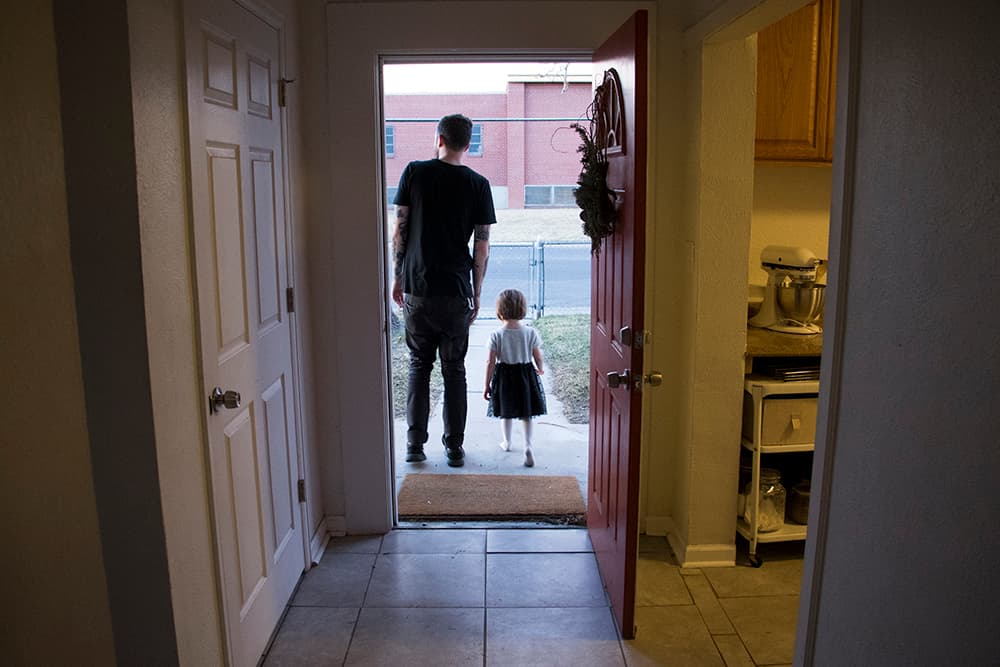?️ Denver Election Guide 2021: Links to info about ballot initiatives in Denver and Colorado, school board candidates and general voting questions are all right here.
Safe and Sound Denver has asked voters to repeal the 2020 Group Living Text Amendment, which was passed by City Council in an 11-2 vote in February. The update to the zoning code allows up to five unrelated adults to legally live together in a single home, up from two. It also made it easier to set up residential-care facilities, such as halfway houses, sober-living residences and homeless shelters, in more parts of Denver and allow those facilities to be regulated by size rather than the services they offer.
The amendment change was a three year-long process of public discussions and meetings. Laura Swartz, a spokesperson with Community Planning and Development, previously said the old limit on group living was among the lowest in the nation and were last updated in the 1980s.
The city said the amendment would expand housing possibilities and allow residents in single-family homes to consider co-living.
Here's the language you'll see on the ballot:
Shall the voters of the City and County of Denver repeal Ordinance No. 2020-0888, regulating residential care facilities, such as elderly residents and people experiencing homelessness, by size rather than use; allowing community corrections facilities to locate in commercial and mixed-use zoning districts and removing the buffer from residential zones and schools for such facilities; and increasing the number of unrelated adults who can live together in a household from two to five with up to one licensed car per adult plus one additional vehicle per household?
How would it work?
If voters approve the repeal, it would be illegal for three or more unrelated adults to live together in a single family home. Zoning limitations on residential care facilities would be replaced, including their regulation to industrial areas that are typically near low-income neighborhoods.
Who's for it?
Safe and Sound Denver is a local organization that formed in August 2020 to oppose the Group Living Amendment. The group said city officials did not actively engage with community members regarding the amendment and questioned why the amendment was passed during the height of the pandemic.
The group is concerned with the amendment's impact on quality of life, arguing that the change would overpopulate neighborhoods and negatively impact their character. They said the amendment also increases trash and parking difficulties.
The group spearheaded the petition to get 2F on the ballot, submitting 13,642 valid signatures to the city.
"The goal of the referendum is to facilitate authentic public consideration and genuine public engagement regarding housing uses in our city," said Florence Sebern, a member of Safe and Sound. "We support the stability of our neighborhood communities and policies that support Denver's long-term growth. We object to our unique and diverse neighborhoods being used as an experiment for unproven agendas."
Sebern previously said the city has no proof that the zoning changes were beneficial to housing affordability, citing a 2018 charter from the Group Living Amendment Committee that "clearly states the zoning code has no ability to effect or guarantee housing affordability."
Swartz, whose department worked on the amendment, said that line "appears to have been taken out of context" and that the "code amendment was about modernizing outdated zoning regulations that were negatively impacting groups of people across Denver," as opposed to focusing on the "provision of affordable housing, which is housing that has been intentionally deed-restricted to remain affordable for people."
Safe and Sound did not respond to Denverite requests for updated comments for this guide.
Who's against it?
Keep Denver Housed is a coalition of organizations, elected officials and community leaders that are against 2F, including several neighborhood organizations, faith-based organizations, advocacy groups, Mayor Michael Hancock and the 11 City Council members who approved the vote in February, including At-Large Councilwoman Robin Kniech.
Kniech said the ordinance was repeatedly tinkered with to address community concerns, such as parking limitations (one per adult and one extra) and spacing restrictions between residential care facilities, which are limited per neighborhood.
She says a repeal would cause further displacement in the city, which is already struggling with affordable housing opportunities. She added that the old zoning law was outdated and started in the 1950s after redlining and racially explicit covenants ended.
"These restrictions were designed to keep certain people out of certain neighborhoods," Kneich said. "Data from our own Census, as well as other cities, tells us that very few people want to live with multiple unrelated adults... but for those who need to, it's critically important because they are sharing housing costs."
Clarification: This post has been updated to include the department of Community Planning and Development's response to Sebern's description of a 2018 charter from the Group Living Amendment Committee.













